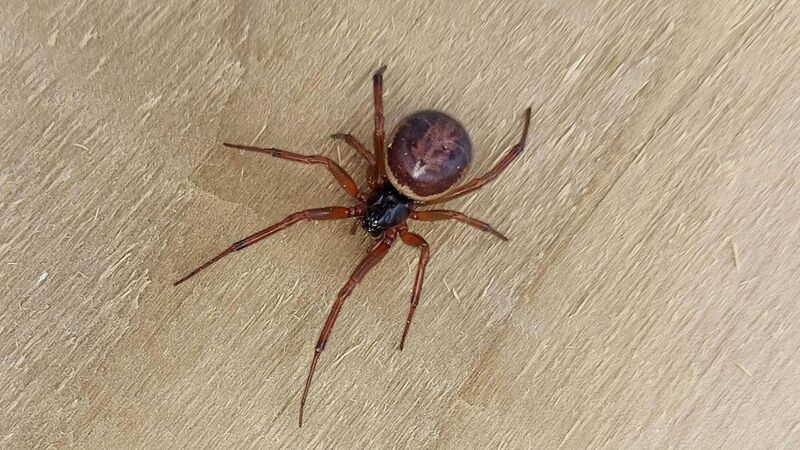Dark web: False widow spider sinking its venomous fangs into people all over Ireland

Noble false widow spiders can deliver a venomous bite that can cause symptoms ranging from mild to debilitating pain and mild to intense swelling. Picture: Dr John Dunbar
Irish scientists have discovered that a bite from one of the nation’s most common spiders can result in hospitalisation.
A new study from NUI Galway has found that noble false widow spiders can deliver a venomous bite that can cause symptoms ranging from mild to debilitating pain and mild to intense swelling.










